Category Archive: Safety
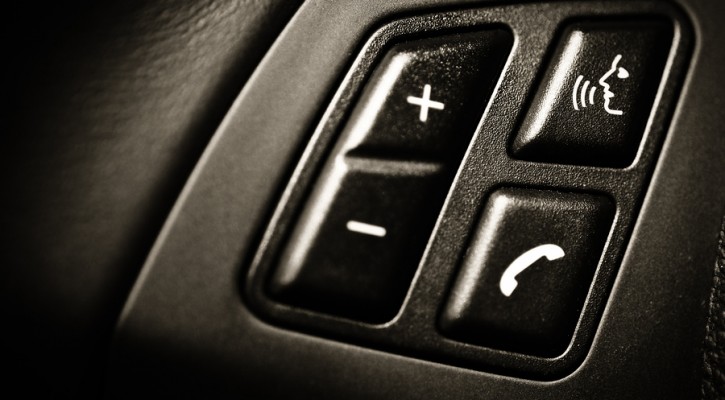
Are Technology Companies Trying To Kill Us?
October 7, 2014
To stay competitive, computer technology companies are always in a rush to come out with the latest and greatest new gizmo that people didn’t even know they wanted or needed. When it comes to motor vehicles, some of the new technology can help to make driving safer but most of the new technology will, in all probability, add to the dangers on the road. Let’s look at some of the latest innovations and how they could impact driving safety.
Wireless Connectivity
We’ve already addressed the push by the federal government to develop wireless connectivity in motor vehicles to enable cars to “talk” to each other. It’s hoped that this technology (known as Vehicle-to-Vehicle communication, or V2V) will warn a driver if another car is on a collision path. It could save a lot of lives but that technology is quite a few years away. However, automakers and mobile phone companies are rushing to add wireless technology to cars now; not to keep track of other vehicles other vehicles but to allow vehicle occupants access to the web at all times. The argument could be made that they aren’t advocating that drivers use computers but, human nature being what it is, many will be tempted to use their computers while driving.
Google Glass
With Google Glass, a driver won’t need a laptop. He or she can have access to a computer screen at all times. The inventors of this device say the underlying principle isn’t meant to distract but rather to connect people more to the world around them. Regardless of their intentions, reading emails or viewing stock reports while driving is a major distraction. Google is currently fighting efforts by some states to ban the use of Google Glass while driving.
Apple Watch and Android Wear “wristwatches”
Both Apple and Google are competing to put full computer technology into a wristwatch sized device. Both advertise the ability of their watches to allow the user to receive texts and emails. Now a driver can try to read his or her emails on a teeny tiny screen. A driving safety organization in Great Britain has already published a warning about the dangers of Apple Watch.
Bluetooth
Several automakers have incorporated Bluetooth technology into their cars enabling the driver to make hands free calls by syncing the driver’s phone to the car radio,. While at first, this may seem like a better option but a recent joint study by AAA and the University of Utah shows that the opposite is true. The results of their research show that using a hands free phone can be more distracting than just picking up the phone itself.
The best advice remains to put down the phone/ glass/watch and just concentrate on driving.
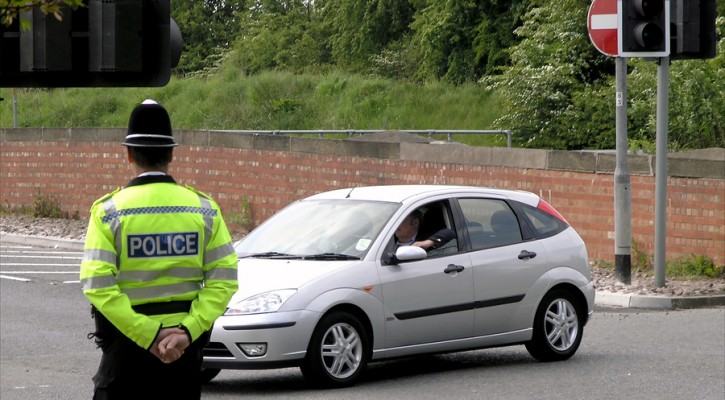
Driver Behavior VS Technology
September 24, 2014
Ignoring driver behavior in favor of technology is killing people according to an an editorial that is going viral on news websites. Leonard Evans, president of Science Serving Society writes that the US is failing in its efforts to prevent motor vehicle deaths because of its focus on the wrong area of automotive safety.
In his editorial, Dr. Evans cites the difference in traffic death rates between the US and other industrialized nations. Since the highest recorded highway death rates in 1972, the US traffic death rate has fallen by 41 percent however, during the same period, the Netherlands and Germany’s traffic fatality rates have fallen by 81 percent and Great Britain’s fell by 76 percent.
The difference between the US and the other top performing industrialized countries is the US reliance on technology to improve survival rates during a crash. Rather than relying on technology alone, the other top performing nations worked hard to prevent crashes altogether by changing driver behavior through a combined use of technology and enforcement of sensible traffic laws. Read more: U.S. traffic safety misleads the public

Schools Should Start Later Say US Pediatricians
August 25, 2014
Middle and high schools should start later say the American Academy of Pediatrics. In a policy statement put out today by the organization, the Academy called on schools with students from the age of 10 and above to start no earlier than 8:30 AM. This is being done for health and safety reasons in order to ensure teens get enough sleep.
According to the Academy, teen sleep cycles naturally shift and it’s nearly impossible for the average teen to get to sleep earlier than 10:30 PM. Teens also need more sleep for their developing bodies. Schools that start too early prevent teens from getting a full night’s sleep. Only 15 percent of the nation’s schools start at 8:30 or later and 40 percent start earlier than 8:00 AM. A poll conducted by the National Sleep Foundation showed that 59 percent of middle school and 87 percent of high school students get the recommended amount of sleep each night.
We wrote on this subject back in 2010 in an article titled: School Start Times Related To Teen Crash Rate. Studies at that time showed that teens in schools that start too early have a higher crash rate and don’t perform as well academically compared to teens in school districts that start later.
The Academy of Pediatrics called on parents to start a dialogue with their local school boards to push for later start times. Read more: Pediatricians Say School Should Start Later For Teens’ Health

Hackers Offer Suggestions For Hacker Proof Cars
August 19, 2014
A group of computer hackers calling themselves “I Am The Cavalry” have written an open letter to automakers calling on them to develop automobile computer systems that are hacker resistant. With cars growing ever more dependent on computer technology, the group expressed fears that hackers could infiltrate a car’s computer system and cause a crash. Continue Reading

Getting There Faster By Going Slower On The Interstate
August 14, 2014
Slower speeds on the interstate might just get you home faster. At least that’s what traffic engineers in Atlanta hope. In a new program that has already shown some success in Washington State, computer controlled variable speed limit signs are being added to the northern portion of I-285; otherwise known as the perimeter highway that circles the city of Atlanta. Continue Reading
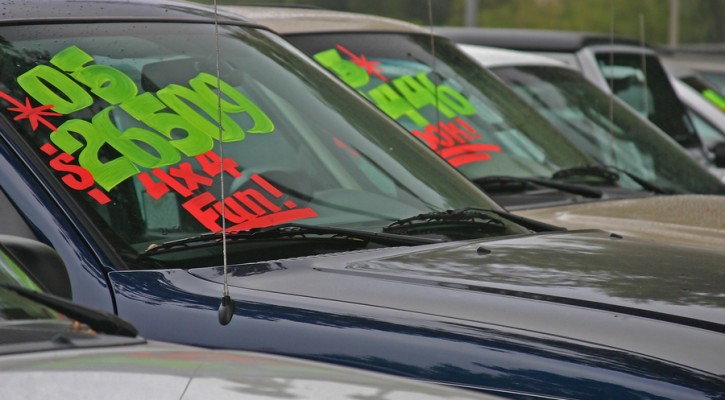
NY City: Recalled Used-Cars Must Be Repaired
August 4, 2014
In May, we posted on the fact that there is no federal law requiring used-car dealers to repair cars that have been recalled. Often, used-car buyers are not informed that the vehicle they are buying has been recalled or that there may be serious safety defects on the vehicle. New York City, strictly following a state law that requires all vehicles to be safe and roadworthy, is imposing new rules on used-car dealers requiring that recalled vehicles in their inventory be repaired before they can be sold to the public. Read more: New York City Imposes a Used-Car Repair Rule
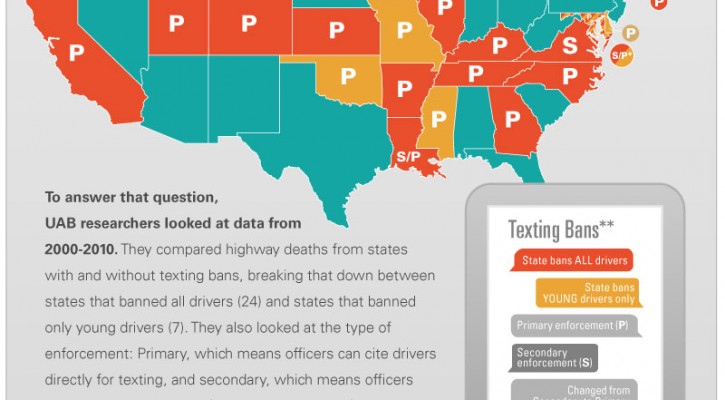
Study: Primary Texting Laws Save Lives
July 30, 2014
States with primary laws banning texting while driving have shown a reduction in traffic deaths as opposed to those states with secondary laws or no texting law at all according to a study published by the University of Alabama at Birmingham School of Public Health. States with secondary anti-texting laws showed no significant reduction in traffic deaths. Deaths among the 15 to 21 year old age group were reduced by 11 percent. Continue Reading
The Human And Economic Costs Of Traffic Crashes
July 8, 2014
An interesting infographic that shows the human and economic toll of car crashes.
From: Bankrate Insurance’s CarInsuranceQuotes.com
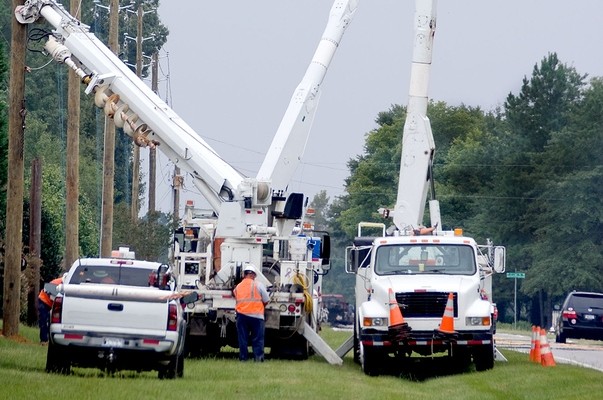
New Move Over Law Takes Effect July 1st
June 30, 2014
A new bill passed into law and signed by the governor of Florida makes important changes to the Florida Move Over Law. In addition to police, fire, and tow trucks, HB 7005 adds sanitation vehicles and utility service vehicles to the Move Over Law. Florida’s Move Over Law requires that motorists approaching an emergency vehicle such as police, fire ambulance, or tow truck and, beginning July 1st, sanitation and utility service vehicles with their emergency lights flashing to move over into the lane opposite the emergency vehicle or, if moving over isn’t possible, to slow to 20 mph under the posted speed limit. The deaths of a Florida Highway Patrol trooper in May and a tow truck operator on June 28th, shows the importance of this law.
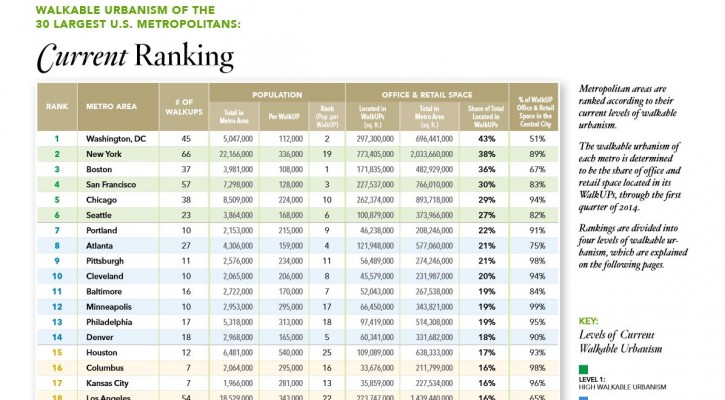
Best And Worst Walkable Cities In The US
June 24, 2014
The George Washington University School of Business recently produced a report ranking the most walkable and least walkable of thirty large metropolitan areas in the US. Three Florida cities rank in the ten least walkable cities. The least walkable city on the list is Orlando at # 30 along with Tampa at # 28, and Miami at # 23. This report correlates with the Florida Still The Leader In Pedestrian Deaths, which ranks four Florida cities as the most dangerous cities for pedestrians. Read More: Ranking Walkable Urbanism in America’s Largest Metros

![The Human and Economic Toll of Car Crashes [Infographic]](http://www.carinsurancequotes.com/Media/Default/Infographics/car-crash-infographic-600px.png)